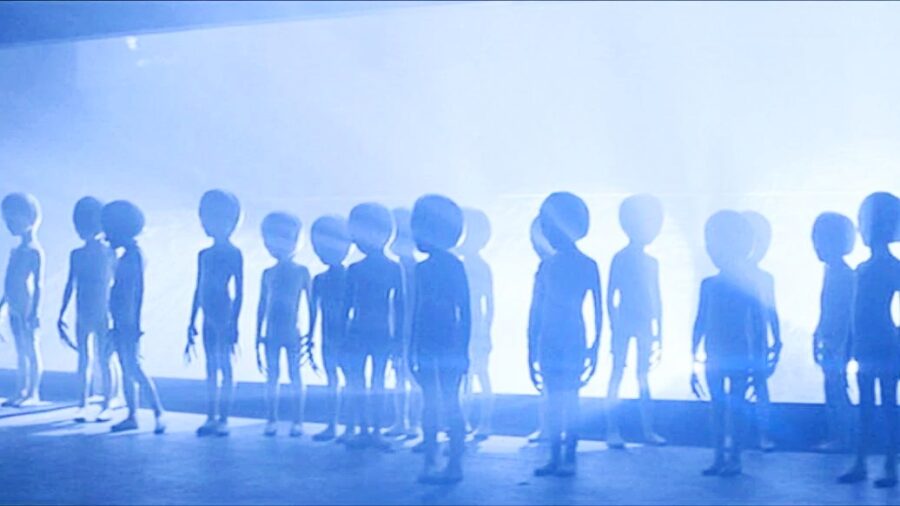Scientists Say Humans Won’t Meet Aliens For A Crazy Number Of Years
Scientists have calculated how long it might be before we finally contact aliens, and let's just say, it's not this weekend.

One of modern life’s problems is knowing your future, what you’ll be doing and when. Long-distance friends trying to meet up for coffee when they don’t know what might crop on their schedule sees a twenty-minute catch-up postponed for months on end. The same can be said for us Earthlings meeting up with our friends from other planets, as ScienceAlert reports, a study shows that if Aliens do in fact exist, we won’t be hearing from them for at least 400,000 years, keep your calendars clear folks!
400,000 years! Houston, we have a problem. Considering the infinite landscape that is our Universe, theories would suggest that Humankind is not alone in the Universe, so why the hefty rain check on swapping notes with our alien friends? Authors Wenjie Song and He Gao are the ones behind this otherworldly conundrum in their paper titled The Number of Possible CETIs within Our Galaxy and the Communication Probability among These CETIs, published in The Astrophysical Journal. CETIs is shorthand for ‘Communicating Extraterrestrial Intelligent Civilizations’ and it is these civilizations that are at the core of this paper. To judge when an Intelligent Civilization would be able to communicate with us, Song and Gao incorporated two parameters into their thinking. The first is how many planets are capable of hosting intelligent life within our galaxy and the second is how long does it take for life on these planets to evolve to such a state they’d be capable of communication?
Wenjie Song and He Gao then applied these parameters to incredible scientific thinking and the 400,000-year calculation was produced via a pessimistic set of equations. The pessimistic numbers suggested a possible 111 intelligent civilizations across The Milky Way and limiting factors such as world-ending events also interfered to produce the lengthy timeframe. However, for those fearful they won’t be around in several thousand centuries’ time, an optimistic scenario estimated that aliens and humans could converse in 2,000 years’ time. Much better.
Obviously, this paper is merely a theory, as opposed to a hard fact, so the optimistic among us can remain hopeful that the final frontier comes knocking sooner than expected. Alternatively, science fiction offers more opportunities to seek out alien life than science-fact/theory. The time-traveling earth-loving time-lord known affectionately as The Doctor has been acting as a mediator for alien-human communication since the 1960s and Starfleet was founded in the 22nd century.
As humorous as it may be to stack an official scientific paper up against popular science fiction to hypothesize when aliens will communicate with humans for the first time, it highlights the beauty of science fiction. Sci-Fi offers intrigue, escapism, and fantasy in a way that many other genres can only dream of achieving. How many scientists in the present moment have been inspired by the books, comics, films, and television shows that have come and gone? One would wager that the number is extremely high. So if it has to be a 400,000-year wait for aliens to say hello, perhaps The Doctor can whisk the lucky few away in their TARDIS and travel forward in time to do the talking for us.












